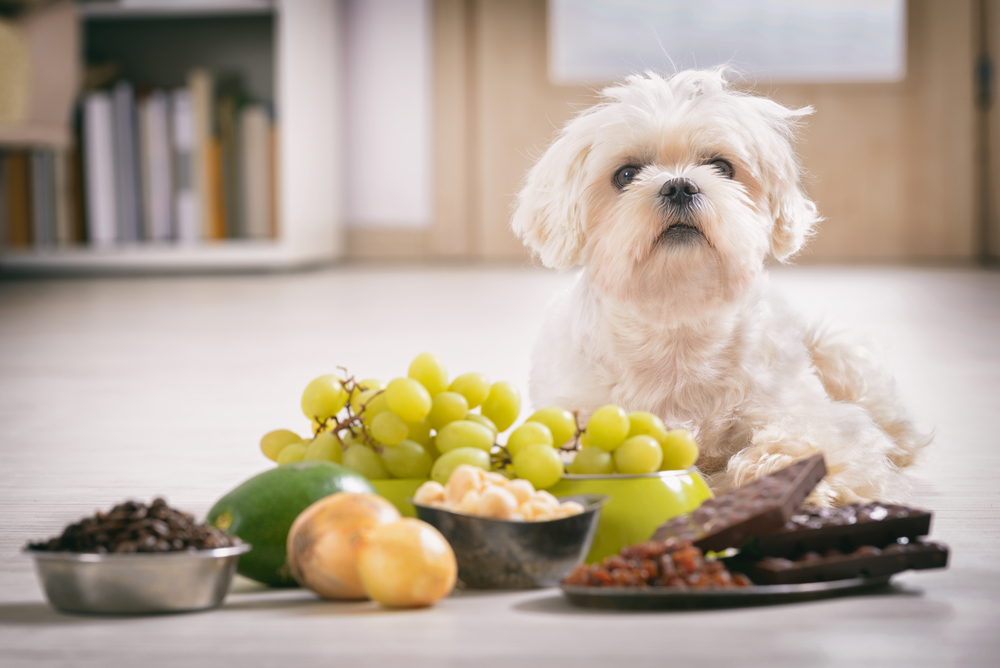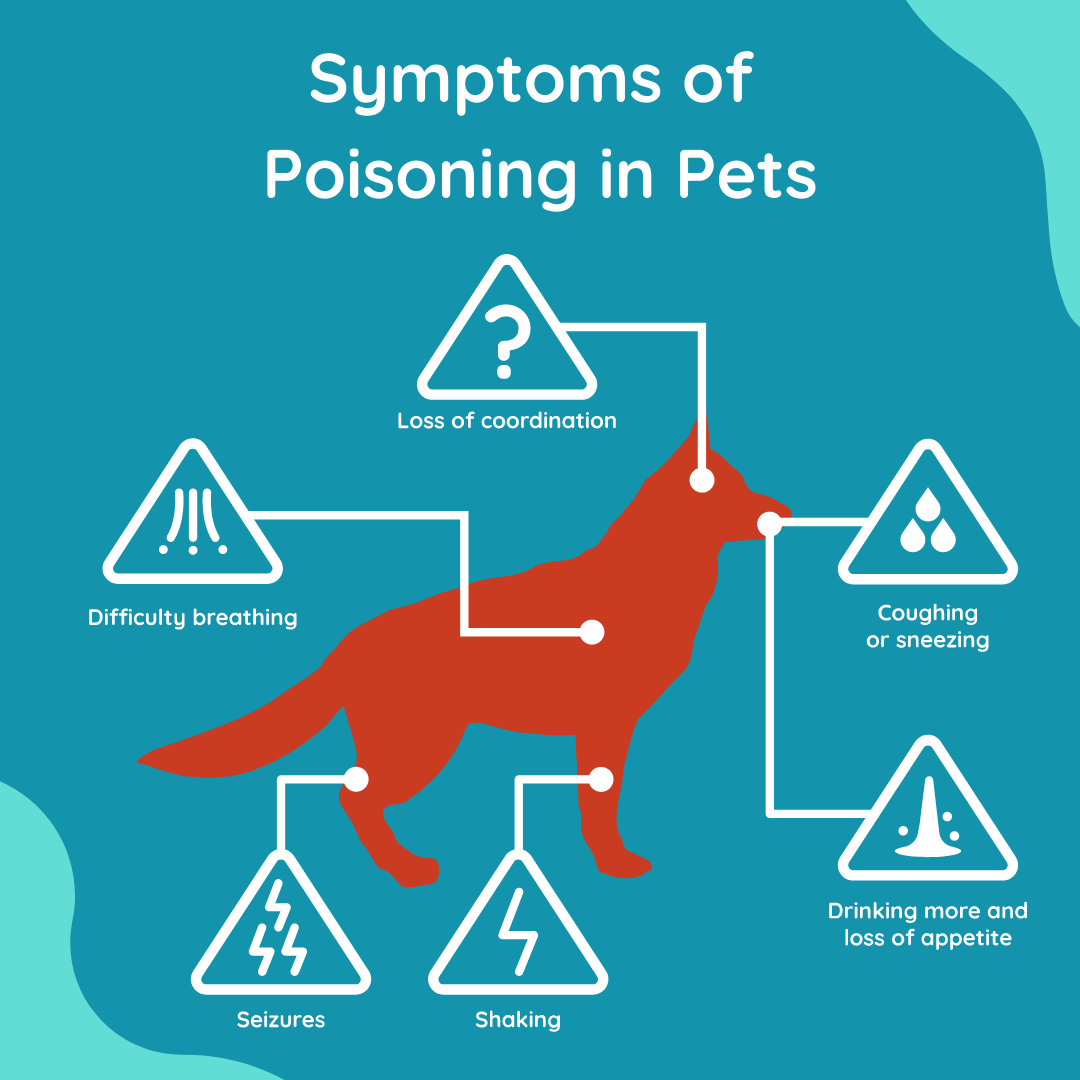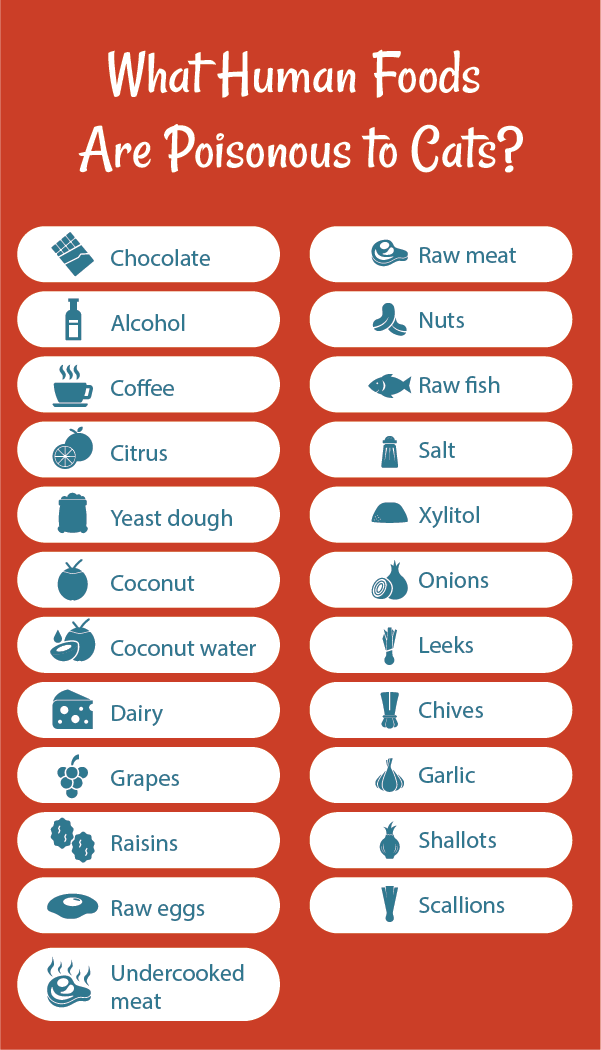
A constant worry for pet owners is the possibility of their pets eating something that they shouldn’t. There are many foods that humans can consume that are dangerous for pets, such as chocolate for dogs. But on top of that, there are chemicals and other substances that pets can get into that could also be poisonous.
Ideally, pet owners can monitor everything their pet eats, but that’s not always possible. There are times when pets have to be left alone. Pet owners also can’t control what a pet may find outside. Therefore, it’s essential that pet owners know what to do if their pet eats something poisonous.
Symptoms of Toxicity

If you think your pet has ingested something poisonous, keep an eye out for the following symptoms:
- Lethargy
- Sluggishness
- Drinking more
- Lack of appetite
- Vomiting
- Diarrhea
- Extreme excitability
- Coughing
- Sneezing
- Loss of coordination
- Shaking
- Difficulty breathing
- Seizures
Not all pets will react the same way to a toxic substance. Some may not show any symptoms at all right away. Larger pets that have ingested only a small amount of a poisonous substance may also take longer to react. It’s important to also keep an eye out for signs that your pet has gotten into something they shouldn’t, such as an empty candy wrapper that none of the humans in the household have eaten.
What to Do If Your Pet Has Ingested Something Poisonous
1. Remove Your Pet from the Vicinity
Once you know that your pet has eaten something toxic, the first step is to remove your pet from the area with the toxic substance. Move your pet somewhere safe where they can’t ingest any more.
2. Call Your Vet
Once your pet is safe and is away from the temptation of eating or drinking any more, it’s time to call the vet. This should be done as quickly as possible. Don’t wait to call your vet until you’re certain your pet is experiencing the symptoms of toxicity. The second you suspect that they’ve ingested something toxic, call your vet’s emergency line. If your own vet doesn’t have 24-hour services, find the closest one that has emergency services after hours or call the ASPCA’s hotline at 1-888-426-4435.
3. Do Not Induce Vomiting
Some pet owners may think they’re helping by trying to induce vomiting. However, many toxic substances might be caustic and could hurt your pet even more on the way back up. Only induce vomiting if your vet has told you to.
4. Don’t Let Your Pet Groom
Some toxic substances can be absorbed via the skin. If you think your pet might have gotten some of a toxic substance on their fur, make sure they don’t groom themselves. You should only bathe your pet if your vet recommends it, though. Sometimes, a bath can cause a chemical to absorb further into the skin.
5. Treat Your Pet
Follow your vet’s instructions for how to treat the toxicity. How to treat it depends on what your pet has ingested. Most likely, the vet will recommend that you bring your pet in for an emergency visit. The vet can then treat your pet with IV fluids, activated charcoal, induced vomiting, or other treatment steps that will help save your pet.
Human Food That Is Poisonous to Dogs

The following are some human foods that are dangerous for dogs:
- Chocolate
- Alcohol
- Avocado
- Caffeine
- Coffee
- Grapes
- Raisins
- Coconut
- Coconut oil
- Citrus
- Onions
- Chives
- Garlic
- Shallots
- Scallions
- Dairy
- Nuts
- Xylitol sweetener
- Raw meat or eggs
- Raw bones
- Salt or salty foods
- Yeast dough
Human Food That Is Poisonous to Cats

The list of human foods that are dangerous for cats is very similar to that of foods that are dangerous for dogs. You shouldn’t feed your cat the following:
- Chocolate
- Alcohol
- Coffee
- Citrus
- Yeast dough
- Coconut
- Coconut water
- Dairy
- Grapes
- Raisins
- Raw eggs
- Undercooked meat
- Raw meat
- Nuts
- Raw fish
- Salt
- Xylitol
- Onions
- Leeks
- Chives
- Garlic
- Shallots
- Scallions
What to Do If Your Pet Eats a Non-Food Item
If your pet eats something that isn’t food, such as a sock or a piece of a toy, this can be dangerous. You should call your vet and take your pet in for an emergency appointment as quickly as possible. The item your pet has eaten could obstruct their airways or damage their internal organs if it’s not removed.
Some pets regularly eat non-food items, such as soap, dirt, or poop. This condition is called Pica and is the compulsive eating of substances that aren’t food. If you notice that your pet is doing this, contact your vet. While it may not be an emergency like the eating of a toy, it’s important to treat the condition and learn how to train your pet. Sometimes, pets who eat non-food items like dirt or soap are doing so because they are deficient in a specific nutrient.
Worried About Your Pet? Contact Us.
If you’re concerned about your pet for any reason, don’t hesitate to contact Dr. Phillip’s Animal Hospital. Our phone number is (407) 352-2579 and we have extended hours: 8 am to 11 pm Monday through Friday, 9 am to 7 pm Saturday, and 9 am to 5 pm Sunday.




